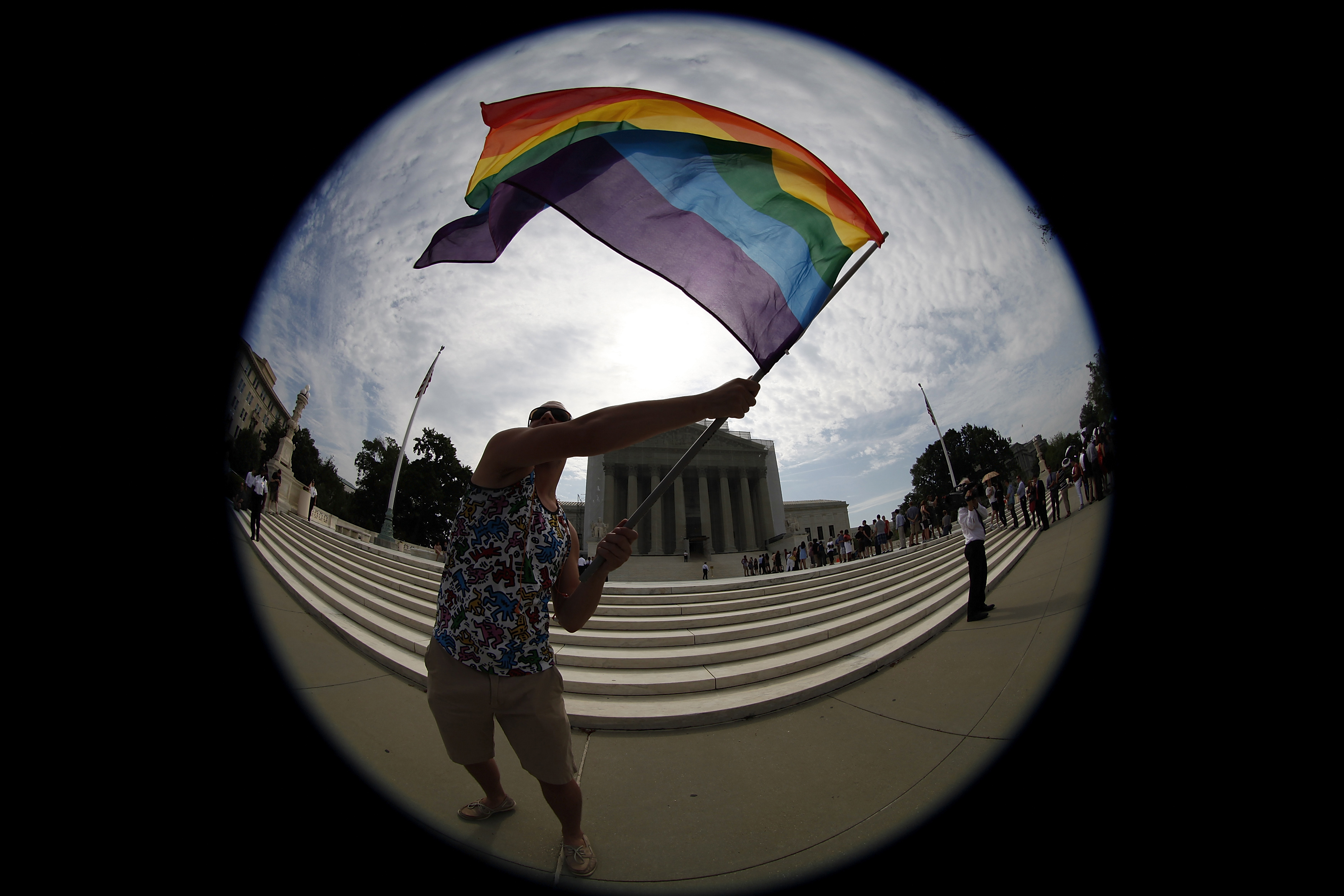On National Coming Out Day, Don't Disparage the Closet
"Coming out" is a brave but complicated act, and overemphasizing its importance may be unwise.

It has been over five years since I logged onto Facebook and publicly announced my sexual orientation. “I can no longer stay silent, friends,” I wrote. “I am gay and have been for a lifetime. I recognize that this may be a shock to some of you but I would be remiss to only share half of me.” Coming out was both liberating and constricting, for me. It was beautiful although the consequences were occasionally ugly. I am glad I came out. But what about those people who aren’t?
In October 1988, National Coming Out Day (NCOD) was founded to celebrate individuals who publicly identify as lesbian, gay, bisexual, and/or transgender. This October 11 will again be a day cheering authenticity and bravery. And it’s an event I have mixed feelings about.
On the one hand, it takes courage to publicly identify as LGBT. Who wouldn’t commend individuals who openly share their internal selves with the external world knowing they can receive backlash? But while I, too, applaud the authenticity inherent in the act of coming out, the experience is not for everyone. The danger in over-emphasizing coming out is that the act, at least in the short term, benefits the group sometimes more than the individual.
The coming out experience can be a precarious time in a person’s life, particularly when one belongs to multiple marginalized communities. Contrary to the mainstream depictions of an economically secure, predominately white community, LGBT people are racially and financially diverse. In a 2012 Gallup poll, for example, black Americans identified as the most likely group to identify as LGBT.
When making a public declaration about one’s sexual orientation and gender identity, some LGBT individuals receive an immediate celebration for displaying courage and strength. On the other hand, some testimonies are not warmly received, as illustrated by the countless stories highlighting workplace discrimination, family rejection leading to homelessness, physical violence (particularly against black trans women and gender-nonconforming men), and unfair criminalization of black LGBT youth.
Homophobia, biphobia, and transphobia are not new, but the animus has been alarming lately – in some instances even resulting in death. This May Mark Carson, a gay black man, was brutally killed because of his sexual orientation. Islan Nettles, a black trans woman, was taunted, beaten, and murdered in August after identifying as transgender. These are not isolated incidences.
Ultimately, coming out is important because it makes the LGBT community more visible, particularly for black LGBT individuals. But focusing so intensely on coming out places the burden on the individual to brave society rather than on society to secure the safety of the individual. In the name of “visibility,” the victims of repeated discrimination are forced to ensure they are seen.
What gets lost in the current fascination with forcing people out of this proverbial closet—consider the pressure Ricky Martin said was placed on him, to choose a high-profile example—are the understandable reasons why LGBT individuals (celebrities probably to a lesser degree) stay in: physical danger, financial repercussions, and lack of safety nets, among others. Even people whom society simply perceives to be LGBT are inundated with coming-out mantras—NFL free agent Kerry Rhodes was a victim of societal infatuation with coming out, and South Park dedicated an entire episode to dragging Tom Cruise out of the [literal] closet.
Policing someone’s sexual orientation or gender identity journey—and its level of openness—will always be troubling, whether coming from homophobes or from the LGBT community itself. There is no correct or incorrect way to be LGBT. We must respect the personal decisions individuals make regarding their sexual orientation, gender identity, and public declarations or lack thereof. And it’s vital to appreciate the ways in which race, class, gender, disability, age, and lack of support can complicate the popular narrative of what it means to “come out.” If there is one thing the “It Gets Better” campaign unintentionally taught me it is that if our society does not actively work to make things better, the lives of LGBT people will not get better.
My heart breaks when I think of Jamey Rodemeyer, a 14-year-old teenager who made an “It Gets Better” video and committed suicide months later. His courageous decision to share his story was applauded by the video’s viewers and by many of his peers. But the negativity of other Internet commenters drowned out those voices, resulting in his untimely death.
I can appreciate the power of unapologetically owning your identity, but a coming out conversation without considerations of these phobias, including the antagonism that flows therefrom, and the lack of potential safety nets, is not a conversation worth having. Certainly no one should be forced to come out. Our personal journeys are just that: personal. The last thing a closeted LGBT individual needs, faced with a hostile social environment, is to feel like those individuals most accepting of his or her identity won’t support him or her unless that identity is publicly proclaimed.
Whatever decision an LGBT individual makes about coming out, be there to support and encourage them—even if their decision does not align with popular political imperatives—on NCOD and everyday thereafter.